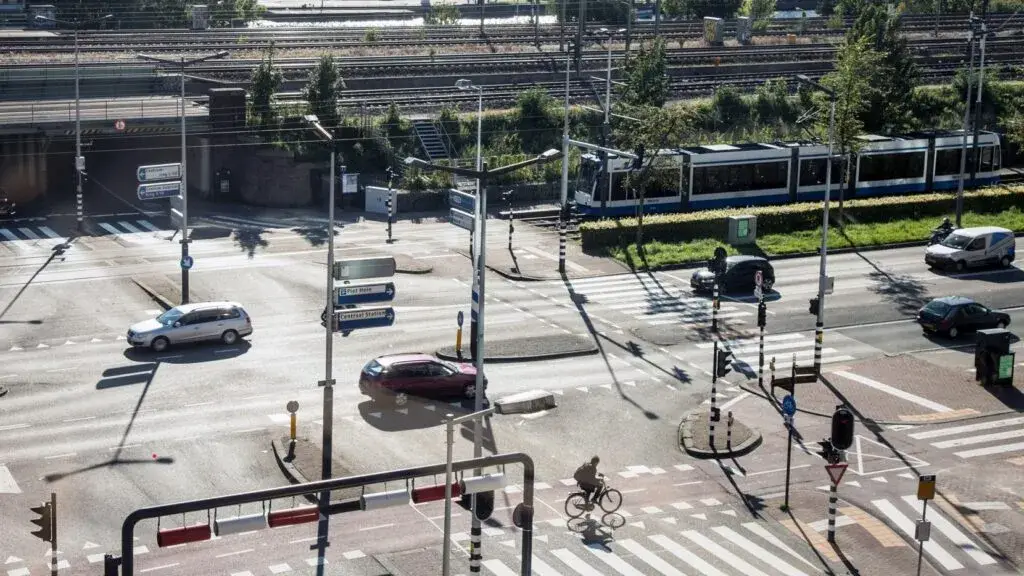European collaborative mobility data platform Vianova has announced that it’s joined a new consortium in the Netherlands to test mobility data solutions and help build smart, sustainable cities for the future. The consortium – Digital Orchestration of Public Spaces (DRO) – was launched as part of the Dutch Metropolitan Innovations (DMI) ecosystem and an official innovation contract was awarded by the Dutch Ministry of Infrastructure and Water Management at the end of 2023. With a more than €23m budget, the consortium will work on the development of digital tools for cities and regions to better manage public space over the next five years. Vianova is the only non-Dutch organization joining the consortium and will contribute mobility data to improve road safety and reduce carbon emissions in cities.
Cities and regions of the future
In the Netherlands, cities and regions face complex challenges in the fields of mobility and urban planning. For instance, in Amsterdam, where the population is projected to exceed one million by 2030, the city is exploring ways to reduce pressure on public space, enhance safety, and simultaneously promote the use of environmentally friendly and accessible transportation.
In Almere, meanwhile, the city is grappling with above-average housing ambitions alongside growing mobility needs, and increasing mobility poverty. For these challenges, traditional instruments such as traffic lights, traffic controllers, and physical interventions in public spaces are no longer sufficient in the dynamic mobility landscape of today and tomorrow.
Scalable, data-driven solutions
DRO-DMI offers opportunities to better manage public space through digital instruments, such as intelligent access. This is necessary to implement the choices made regarding the use of public space in cities. These choices are made in an ecologically safe and socially just manner, considering all current and future users.
Digital instruments such as intelligent access can help ensure that cities remain accessible and livable for all target groups, whilst other interventions could include promoting sustainable modes of transportation or orchestrating interventions aimed at addressing mobility poverty. DRO-DMI aims to create cities and regions where everyone can comfortably travel from A to B.
Launch of DRO-DMI consortium
The DMI ecosystem focuses, among other things, on improving mobility and public spaces through digital tools. Within this ecosystem, DRO-DMI brings together various cities, technology organizations, and research institutes, including the Municipality of Amsterdam, Municipality of Almere, Groningen Bereikbaar, Goudappel, Technolution, and AMS Institute.
Vianova was selected as part of the consortium thanks to its cloud-based mobility platform, which leverages IoT and data from one million+ connected vehicles daily to provide stakeholders with advanced geo-intelligence about how vehicles move around cities.
In the Netherlands, Vianova is already working with Utrecht and Eindhoven to support the cities in rolling out sustainable mobility. Mobility providers share their data with cities through Vianova, whilst policymakers and urban planners use the data to gain valuable insights and analytics to improve decision-making.
Thibault Castagne, co-founder, and CEO of Vianova, said, “We know cities have the desire to be smarter and more sustainable, but frequently lack the tools to enact their ambitions. By bringing together the public and private sectors to co-create solutions, we can achieve faster and more impactful results. We’re delighted to work together with the DRO consortium to build the next generation of digital resources for the Netherlands and beyond.”
